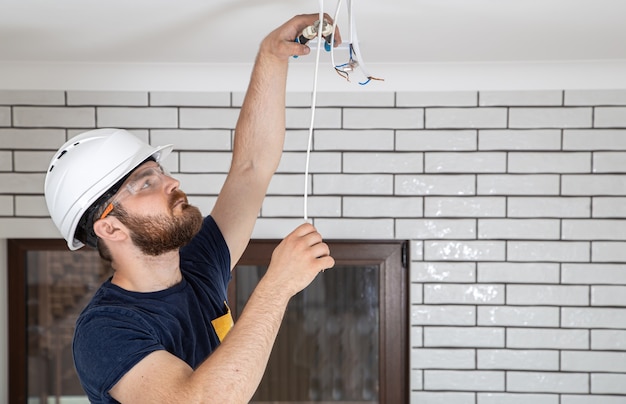
Expert Guide to Electrical Panel Inspection and Repair
Electrical panels, often referred to as breaker panels or distribution boards, are crucial components of any electrical system. They distribute electricity throughout a building and serve as the main control point for the power supply. Regular inspection and repair of these panels are essential to ensure the safety and efficiency of the electrical system. Understanding the intricacies of electrical panel maintenance can prevent potential hazards and costly repairs. This article offers an expert guide to inspecting and repairing electrical panels, providing crucial insights for both homeowners and professionals.
The Importance of Electrical Panel Inspection
Regular inspection of electrical panels is vital for maintaining a safe and functional electrical system. Inspections help identify potential issues before they escalate into serious problems. Here are some key reasons why electrical panel inspections are crucial:
- Prevention of electrical fires and short circuits.
- Ensuring compliance with electrical codes and safety standards.
- Extending the lifespan of electrical components.
- Enhancing the overall efficiency of the electrical system.
Read more about this topic here.
Steps for Conducting an Electrical Panel Inspection
1. Visual Inspection
The first step in an electrical panel inspection is a thorough visual check. This involves looking for signs of wear and tear, such as:
- Rust or corrosion on the panel or components.
- Burn marks or discoloration around circuit breakers.
- Loose connections or frayed wires.
Explore further insights here.
2. Testing Circuit Breakers
Testing the functionality of circuit breakers is essential. This includes:
- Checking for proper labeling of breakers.
- Testing breakers to ensure they trip correctly.
- Listening for unusual noises like buzzing or humming.
Learn more in this detailed guide here.
3. Assessing Load Capacity
Evaluating the load capacity of the electrical panel ensures it can handle the current electrical demand. This involves:
- Calculating the total amperage of the panel.
- Identifying any overloaded circuits.
- Ensuring balance across different circuits.
Find additional information here.
Common Electrical Panel Issues and Repairs
1. Tripping Breakers
Frequent tripping of breakers can indicate underlying issues such as:
- Overloaded circuits requiring redistribution of electrical loads.
- Faulty breakers needing replacement.
- Short circuits or ground faults requiring immediate attention.
2. Corrosion and Rust
Corrosion in electrical panels can compromise safety and efficiency. Addressing this involves:
- Replacing corroded components or panels.
- Improving ventilation to reduce humidity.
- Regular maintenance schedules to catch early signs.
Explore further insights here.
3. Outdated Panels
Older panels may not meet current safety standards and can be inadequate for modern electrical demands. Upgrading these panels can involve:
- Installing new panels with higher capacity.
- Ensuring compliance with updated electrical codes.
- Incorporating advanced safety features.
Learn more in this detailed guide here.
Conclusion
Electrical panel inspection and repair are critical for ensuring the safety and efficiency of any electrical system. Regular assessments and timely repairs can prevent many common electrical issues, ensuring a safe environment and prolonging the lifespan of electrical components. By understanding the importance of these tasks and following structured inspection processes, individuals can safeguard their properties from electrical hazards. For a comprehensive understanding of electrical panels, read more about this topic.